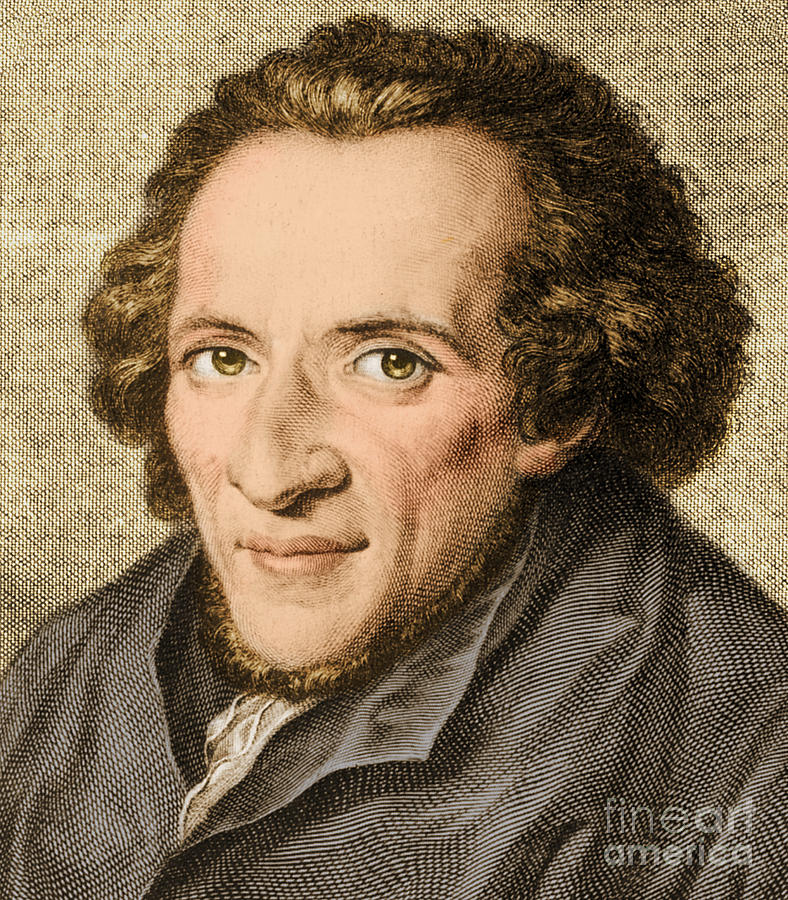Great Throughts Treasury
This site is dedicated to the memory of Dr. Alan William Smolowe who gave birth to the creation of this database.

Moses Mendelssohn
German Jewish Philosopher
"Some part of my goods that I was formerly conscience-bound to give up for the benefit of my fellow-men in general I am now conscience-bound to grant to this individual in particular because of the expectations I have aroused in him. But what has transformed this duty of conscience into an enforceable duty? To explain this, it seems to me, you have to bring in the principles relating to gifts in general and to the rights of deciding conflicts in particular."
"That is, abandon the religion of my fathers and profess the one defended by Mr. Bonnet. For surely, even if I were so base as to counterbalance wisdom with the love of truth and honesty, in this case I would certainly place all three on the same side of the scale."
"The analysis of concepts is for the understanding nothing more than what the magnifying glass is for sight."
"The duty towards my neighbor is externally satisfied if I give him his due, irrespective of whether my action be enforced or voluntary. If the state can't achieve its ends by means of interior motives . . . it at least operates by external ones and helps my neighbor to get what is his."
"The duty towards myself may come into conflict with the duty towards my neighbor; likewise, the duty towards myself may clash with the duty towards God."
"The man who avoids deception because he loves honesty is happier than one who is merely afraid of the punishments that the state has chosen to impose for fraud."
"The natural relationship between parents and children isn't in conflict with this universal law of nature."
"The religion of my fathers, therefore, does not wish to be disseminated."
"The task is to relate these pillars of social life to one another in such a way that they are in balance, rather than becoming burdens on social life or weighing down its foundations more than they help to uphold it."
"The following considerations are presented as my attempt to clarify the concepts of state and religion?especially of their limits and their influence on one another as well as on happiness in civil life."
"The husband has changed his principles and adopted another religion. If the wife is now forced to enter into a household that is contrary to her conscience and to bring up her children on principles that aren't hers?compelled to accept conditions of a marriage contract to which she never agreed?that would obviously be unjust; it would be obviously be a case of pleading freedom of conscience in defense of the most preposterous coercion of conscience."
"We send no missions to the Indies, East or West, or to Greenland to preach our religion to those distant peoples. The latter, in particular, according to descriptions of them, observe the law of nature better ? alas! ? than we do and are therefore, according to our religious teachings, an enviable people."
"The reasons that lead men to rational actions and frames of mind have to do partly with how men relate to one another and partly with how they relate to their Creator and Keeper."
"The right to decide, which was a part of my goods, i.e. was mine, has become through this transfer a good of my neighbor's, i.e., has become his; and I can't take it back from him again without committing an offence."
"The thoughts of God that come to reality to the exclusion of the rest will have this prerogative by virtue of their relative goodness and purposiveness, insofar, namely, as they correspond thus and not otherwise, here and now, to the idea of the perfect and best."
"There is basically a lot of truth in all Hobbes's assertions. They do lead to absurd consequences, but those are due solely to the extravagance of his formulations (Why the extravagance?"
"You know how much I am inclined to explain all disputes among philosophical schools as merely verbal disputes or at least to derive them originally from verbal disputes."
"Where can the origin of this [motion and form] be found? Not in the whole, since the whole has no movement. The sum [S„mmtliche] of all bodies, untied into a single substance, cannot change place and has neither organization nor figure?. Whence the form in the parts, if the whole provides no source for this?"
"Therefore, as you see, had I lacked a sincere belief in my own religion, the result of my inquiries would have made itself visible in a public act. But because [those inquiries] strengthened me in my fathers' [religion], I was able to continue quietly on my way without having to account for my convictions to the world."
"Who is to tell us that we ourselves and the world surrounding us have something more to them than the thoughts of God and modifications of his original power?"
"When Socrates was about 30, and his father was long dead, he was still pursuing the art of sculpture, but from necessity, and without much inclination."
"You have deemed it fitting to dedicate your translation of Mr. Bonnet's Inquiry into the Evidence for Christianity to me, and in your dedication you have appealed to me most solemnly and before the eyes of the public: ?to refute this work, insofar as I find its essential arguments in support of Christianity to be incorrect, but insofar as I find them correct, to do what wisdom, love of truth, and honesty call upon me to do ? what Socrates would have done, had he read this work and found it irrefutable."